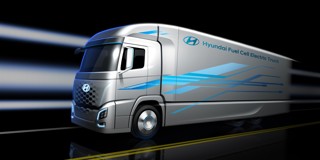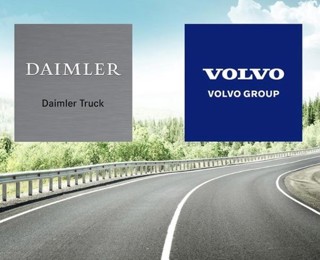A two-year trial to understand the feasibility of using hydrogen-powered trucks has concluded that the current refuelling infrastructure is insufficient.
ULEMCo converted a fleet of vehicles to hydrogen dual-fuel, which means they could also run on diesel if needed.
During the Low Emission Freight and Logistics Trial (LEFT) project the vehicles managed to utilise hydrogen fuel between 25% and 40% of the time.
ULEMCo converted four refuse trucks, a road sweeper, a patient transport vehicle, four panel vans and a refrigerated van. They covered nearly 37,000 miles and used 1619kgs of hydrogen. It is estimated that the vehicles emitted 14 fewer tonnes of CO2 while running on hydrogen.
The demonstrated benefits would have been even more dramatic had the hydrogen infrastructure been more developed, according to ULEMCo. It says project data shows that the CO2 saving would have been about 45 tonnes per annum across the 11 vehicles.
Amanda Lyne, managing director of ULEMC, said: “The LEFT trial was an excellent opportunity for us to show the diverse range of commercial vehicles that can be hydrogen enabled. This provides a route to reducing GHG emissions significantly across fleets of heavy use and heavy duty vehicles without requiring the operators to make major changes to their usual operations.
“A number of the partners including Aberdeen City Council are continuing to use the vehicles at locations where the hydrogen infrastructure is more reliable. All partners agreed that if this was available for them too, they would have continued to do the same.”
Tail pipe emissions in a number of specific applications, such as refuse trucks, were significantly better than the Euro 6 base vehicles, with NOx emissions reduced by between 29-85% across the range of cycles tested. If deployed full time, the vehicles would not only save carbon but also provide improvements to local air quality. At least 96% of the hydrogen used in the trial came from on-site electrolysis from renewable electricity.






















Login to comment
Comments
No comments have been made yet.